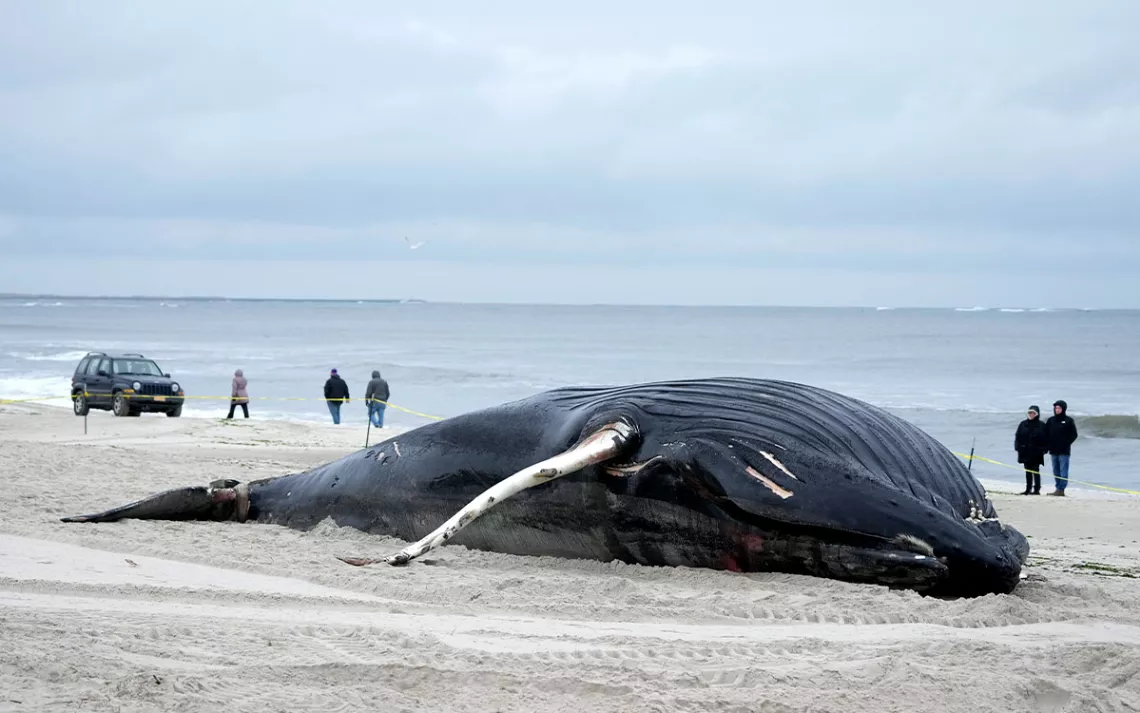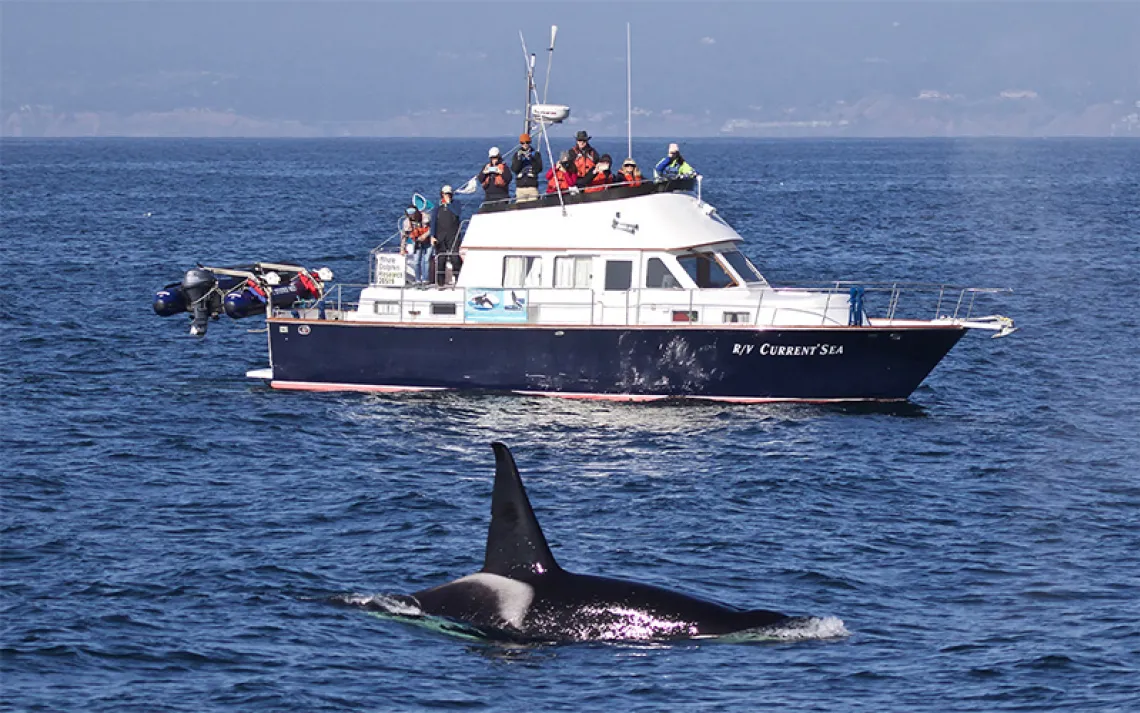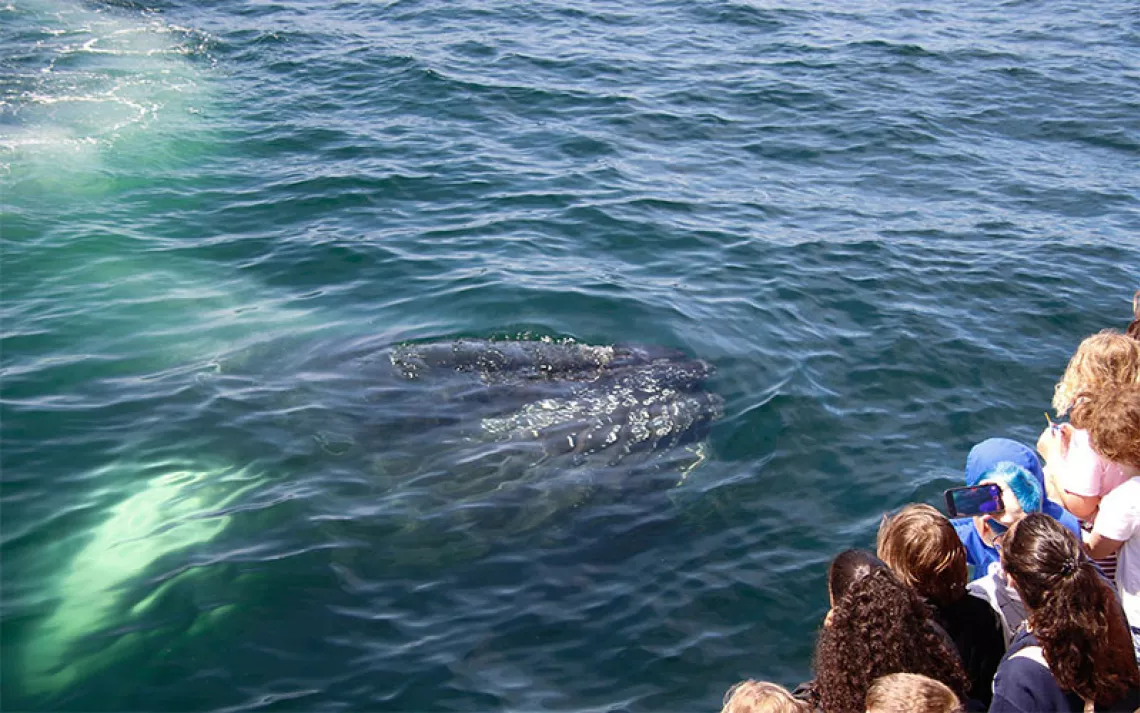Whales Are Dying, and the Fossil Fuel Industry Is Lying
Anti-wind activists are turning to whales for a cultural wedge issue

Distributed by Trice Edney News Wire
Whoever would have thought fossil fuel industry front groups would make whales and other marine species a cultural wedge issue? However, thanks to a deception campaign targeting wind energy, that is exactly where we find ourselves.
The Marine Mammal Stranding Center in New Jersey rescues and rehabilitates live beached animals and performs necropsies on the remains of dead ones to pinpoint their causes of death. Sheila Dean, one of the group’s founders, describes how the rampant misinformation connecting whale deaths to sonar used in surveying the seafloor for offshore wind farms is making her job more difficult. And it is distracting people from what is really killing the whales: vessel strikes, climate change, plastic pollution, and entanglement in fishing gear and marine debris.
“I’ve been doing this for 47 years,” Dean says. “We had a lot of whale deaths in 2023, but there have been years we’ve had more. In 2013, we had a lot of whales and dolphins washing up. Our necropsy data show a wide variety of possible causes of death, including blunt force trauma from suspected vessel strikes. If the sonar from mapping was killing marine life, our shores likely would have been littered with hundreds, if not thousands of dead and dying marine mammals.”
The frenzy that has been whipped up against offshore wind energy has thrust Dean’s organization into the storm. Anti-wind activists and the people they have duped are demanding close examination of whales’ ears to show signs of damage from sonar. But most beached whale remains are in an advanced state of decomposition, making that impossible. Where there have been beached animals that have not been too decomposed, mostly dolphins, the MMSC and its partners have gone the extra mile and incurred great cost for CT scans and lab analysis. The results? No evidence of auditory trauma.
Scientists have been clear. Disruptions in the whales’ feeding patterns, water salinity, and currents are likely the result of climate change. Dean points out the whales are following their food source, which is what brings them into the shipping lanes. Finding no evidence that sonar mapping for offshore wind farms is connected to the whale deaths, groups like Dean’s are being targeted as if they are part of some cover-up fueled by the wind industry. Dean is clear that her organization takes no money from the wind industry.
Meanwhile, the real problems behind the increase in whale deaths go unaddressed. And with climate change perhaps the largest overriding problem, and our transition away from fossil fuels to clean energy the solution… well, it is not hard to see how this is by design.
Lies and deceit have always been the stock-in-trade of the fossil fuel industry’s public relations and lobbying efforts. Back in 2009, when I was national president of the NAACP, the lobbying firm for a major coal industry group faked a letter to Congress from our Albemarle-Charlottesville chapter in Virginia to stop a climate bill. The letter even used NAACP letterhead and declared opposition to the American Clean Energy and Security Act, a bill we actually supported!
So let us follow the money behind the rising tide of local front groups opposing offshore wind development. The organizing efforts and litigation come from organizations with benign names like the American Coalition for Ocean Protection and Save Right Whales. Those organizations link back to dark money groups like the Texas Public Policy Foundation, the Caesar Rodney Institute, and the Committee for a Constructive Tomorrow. And those groups are funded by fossil fuel interests like ExxonMobil and the Charles Koch Foundation. Major players include operatives who have been on the forefront of climate denial for years and involved in previous political smear jobs like the Swiftboat Veterans for Truth.
These groups opposing wind energy are not just screaming their lies into the wind. They are shifting public opinion. A Monmouth poll shows public support for New Jersey's offshore wind projects has dropped from 76 percent to 54 percent in the wake of the disinformation campaign around whale deaths.
The Northeast as a region has been among the most forward-thinking when it comes to the use and development of renewable energy. If these groups are successful in blocking the development of renewable energy adoption and production in the Northeast, it does not bode well for the rest of the country. And the fossil fuel industry knows it.
We are already seeing Big Oil and Gas target solar with blatant misinformation targeted at communities across the country. A recent NPR report detailed how one group connected to polluters and climate deniers, the so-called Citizens for Responsible Solar, “has helped local groups fighting solar projects in at least 10 states including Ohio, Kentucky, and Pennsylvania.”
So if they have not already, misleading campaigns of the fossil fuel industry could be coming to a town near you. Remember if you see a group opposing clean energy, it is usually a good idea to follow the money behind the message.
 The Magazine of The Sierra Club
The Magazine of The Sierra Club



